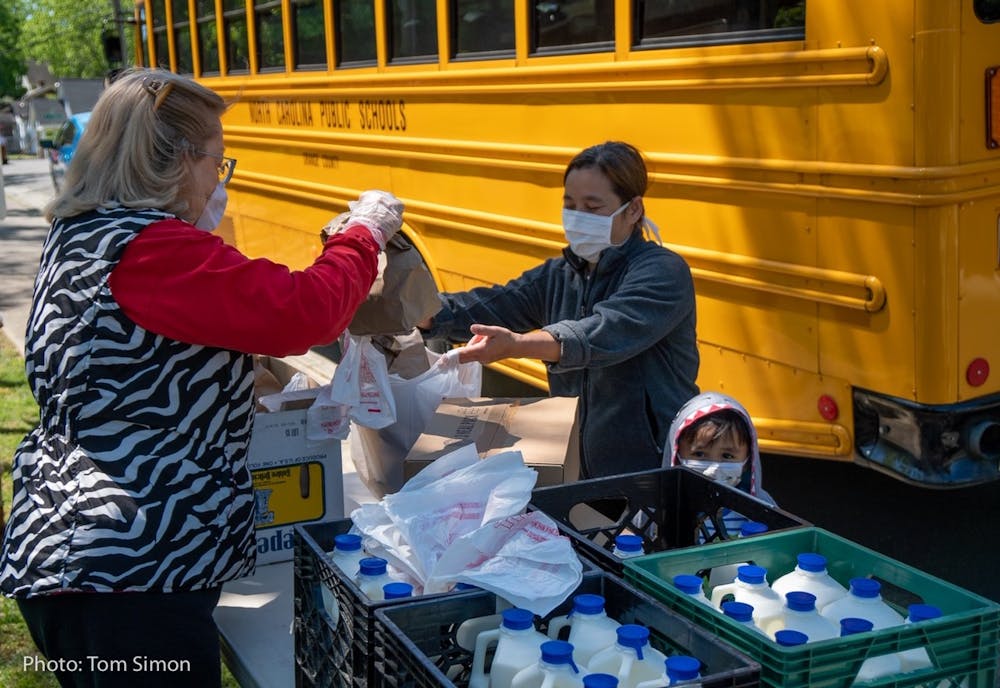This year, the Food for the Summer program in Chapel Hill and Carrboro — a program launched in March to feed students during the COVID-19 pandemic — is relaunching under a new name: Food for Students.
When schools shut down in mid-March, the Child Nutrition team at Chapel Hill-Carrboro City Schools and its community partners and volunteers used the model of Chapel Hill's existing Food for the Summer meal sites to give students access to school meals.
The program was renamed “Food for Students” to adjust to the earlier start date and because it may have to last into the next school year. Food for Students utilizes USDA funds, private donations and community volunteer support.
Mayor Pam Hemminger and the Town of Chapel Hill launched Food for the Summer in 2016. Since then, the program has provided 192,000 summer meals to children at camps and sites throughout Chapel Hill and Carrboro. In a press release, Hemminger said she was grateful for the coalition's efforts to continue this program through the summer.
“In addition to providing food and enrichment, Food for the Summer’s strong reliance on volunteers has brought our community closer together,” Hemminger said.
Through the program, children are provided lunch as well as enrichment opportunities such as free books from Book Harvest, "Fun Buckets" with activities, pop-in visitors from the police and fire departments, nutrition and recreation experts and more.
Food for Students is housed in the Chapel Hill-Carrboro City Schools (CHCCS) Child Nutrition department. According to Christine Cotton, a director of Food for Students and founder of PORCH, a grassroots hunger relief organization based in Chapel Hill, the program has provided over 300,000 meals since it launched in mid-March and serves approximately 1,400 students every day.
When it was announced that schools would be closed for the rest of the school year, Cotton said she was asked by the superintendent of CHCCS to coordinate Food for Students.
Cotton worked with a team of CHCCS employees and the school district’s Meals and Nutrition Department, Transportation Department and Volunteers & Partners Office to get the program running. Cotton said representatives from three local congregations also offered to volunteer at sites to hand out food.




